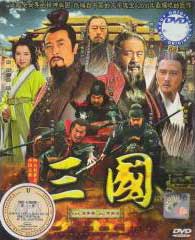
Style names are originally meant to be an exegesis, or an interpretation, of the given name the traditional ideal is for the style and the given name to be so related in meaning that “upon hearing the style one can infer the given name” (Ban Gu, Eastern Han dynasty).

However, Sun Xiu’s writing shows that at the Three Kingdoms era there were already people violating this rule of propriety-potentially for the purpose of showing off their learning by selecting names with obscure literary reference, or simply to ensure that the style has some auspicious or favourable meaning. It is thus a “lack of decency” to assume the privilege of picking a style name, when it is someone else who has to use it.

Picking one’s own style is simply the ultimate lack of decency.”Ī father would not be able to use his son’s style, nor could one refer to himself by his own style. While it is all right for a teacher or a friend to pick the name, it is wrong for a father or older brother to do it. This tradition, however, is relaxed by the time of the Eastern Han dynasty and the Three Kingdoms period, as Sun Xiu continues to note in the edict: “ could be picked by one’s mentor or friends, father or older brothers and sometimes it is done even by oneself. The choosing of the style name is traditionally done by the guests of honour at the capping ceremony, or by the young man’s teacher. 1: Pei quote from the Records of Wu, SGZ Wu: 3 also see Complete Writings from the Three Kingdoms, compiled by Yan Kejun. One may not be addressed by his style by his father or grandfather. The only people who have the right to call him by his given name are his elders and superiors, though they may also use his style name in order to show affection, respect, or simply refinement and courtesy on their own part. (1)”Ī man’s peers would call him by his style rather than his given name, as a sign of respect. When they become of age, a style name is given to them, as their given name is taboo. In an edict announcing the naming of his four sons, Sun Xiu, the third emperor of the Wu kingdom, sums up this tradition nicely: “People have names, so that they can be told apart from one another. From the ancient document The Book of Rites, we know that it has been a tradition since the early Zhou dynasty that one receives a name at childhood and a style when he is 20 years old, at the coming of age ceremony known as the “capping ceremony”. The idea behind this is that one’s given name should be respected and not used lightly. The concept of style names, however, seems to be unique to the Chinese tradition, and deserves some explanation here.Ī style name is an alternative name that one uses upon reaching adulthood. Names are chosen for a child by their parents or grandparents, which is also similar to Western traditions. And just a Mr Smith does not have to have any connection to the profession of smiths, Chinese surnames carry little meaning even though long ago they may have referred to something concrete. In China, just as in the West, children take the surname of their father.


Individuals are officially referred to by their surname and their given name (in that order), thus Liu Bei has the surname “Liu” and the given name “Bei”. Navigate to a specific section of this document.Ī traditional Chinese name consists of three parts: a surname (姓 xìng), a given name (名 míng), and a style (name), which is also known as a ‘familiar name’ (字 zì).


 0 kommentar(er)
0 kommentar(er)
